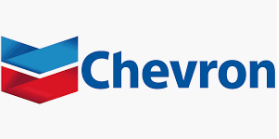$CVX $HES $XOM
#Chevron #Hess #Exxon #OilIndustry #StockMarket #Investing #Mergers #Guyana #Energy #OilPrices #Trading #Finance
Chevron has acquired a 4.99% stake in Hess Corp since the beginning of 2024, according to a recent regulatory filing. This move signals confidence that its planned $53 billion merger with Hess is progressing as intended, despite regulatory challenges. The acquisition cost Chevron approximately $3.2 billion and accounts for about 15.38 million common shares in Hess, reinforcing its commitment to closing the deal. The transaction is part of Chevron’s broader strategy to strengthen its portfolio in the booming oil sector, particularly in Guyana, where Hess holds a significant interest in massive offshore reserves in partnership with ExxonMobil. Analysts see this as a calculated move by Chevron to secure a foothold in one of the world’s most lucrative oil discoveries in recent years.
The Hess acquisition is pivotal for Chevron’s long-term strategy, providing it with access to Guyana’s Stabroek Block, which holds an estimated 11 billion barrels of recoverable oil. This move places Chevron in direct competition with ExxonMobil, which has been leading developments in the region alongside Hess and CNOOC. Regulatory hurdles still remain, with antitrust scrutiny likely as Exxon holds preemptive rights over Hess’s stake in the project. However, Chevron’s decision to increase its exposure to Hess stock underlines its confidence that the acquisition will proceed despite potential roadblocks. Investors are closely monitoring Exxon’s response, as any effort to challenge the merger could introduce further complexities, affecting the stock prices of all involved parties.
Chevron’s deal with Hess follows a broader trend of consolidation in the oil sector as major players seek to secure assets in key regions amid fluctuating energy prices. This follows a wave of high-profile mergers since the start of 2023, including Exxon’s acquisition of Pioneer Natural Resources. The energy sector has seen a surge in deal-making as companies position themselves for long-term growth, taking advantage of sustained high demand and geopolitical uncertainties that bolster oil prices. If successful, the Chevron-Hess merger will significantly enhance Chevron’s production capabilities, making it a stronger competitor to Exxon. Investors are weighing whether the premium Chevron is paying will deliver sufficient long-term value, given potential risks like regulatory obstacles and oil market volatility.
The market reaction to Chevron’s buying spree has been mixed, with Hess shares seeing periodic gains as investors speculate on the deal’s completion. Chevron’s stock has remained relatively stable, reflecting long-term investor confidence in energy sector consolidation despite short-term volatility. The oil industry continues to experience strong revenue growth thanks to resilient global demand, even as OPEC+ production cuts keep supply tight. Should the merger be finalized, Chevron is expected to see a boost in production and cash flow, likely driving shareholder returns higher. Meanwhile, ExxonMobil’s stance on the deal remains a critical factor—should it attempt to exercise preemptive rights over the Guyana assets, the situation could shift, creating potential turbulence for both Hess and Chevron stocks.











Comments are closed.